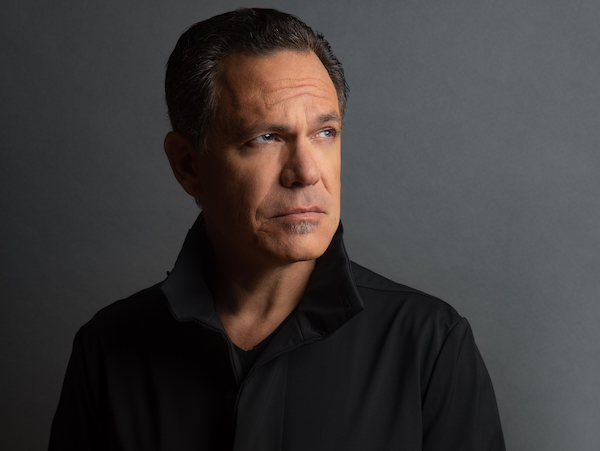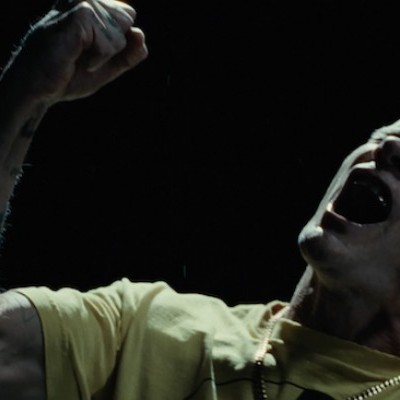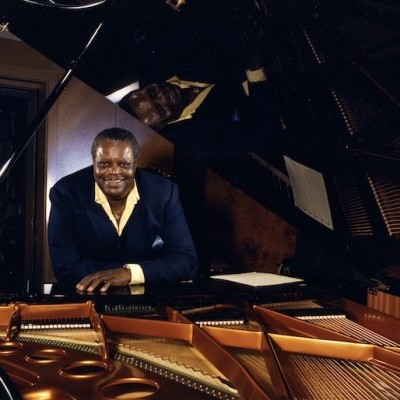Dec 9, 2025 12:28 PM
In Memoriam: Gordon Goodwin, 1954–2025
Gordon Goodwin, an award-winning saxophonist, pianist, bandleader, composer and arranger, died Dec. 8 in Los Angeles.…

Kurt Elling’s latest recording finds the vocalist collaborating with pianist Danilo Pérez. Secrets Are The Best Stories (Edition) is set for release April 3.
(Photo: Anna Webber)There seem to be many jazz musicians who are speaking out about social issues. Have you observed this?
I have noticed that several of my colleagues are at least titling compositions and records in a way that is suggestive of a response to this moment in time. Does it surprise me that this is happening? No. It would surprise me if it weren’t happening, because [musicians] are human beings, and the way that we communicate in the world is primarily through our music. And as a lyricist, I struggle with how pointedly to make my case, to express my viewpoint.
This will continue to be something that I grapple with, because people aren’t paying money to have me make them uncomfortable in a concert setting. But in this day and age, I definitely want to make clear what I stand for, and certainly what I stand against. I owe [my audience] the honesty of the moment. But it’s a very, very large issue that needs balance on any given night. Nobody has paid money for a political speech—they’ve paid, in many cases, to leave that behind.
Danilo Pérez seems like a perfect partner for this kind of a project—not just for his skill as a composer and pianist, but for his social awareness. How did the collaboration come about?
Danilo and I have been circulating around one another for quite a while, and it was finally time for me to reach out. Thankfully, he was amenable. He was extremely kind to offer up so many compositions and arrangements of his own, and he was very enthusiastic about my writing lyrics. We talked about some different concepts, and in some cases, he was very specific about the emotional story he wanted to convey, as in the composition “Beloved (For Toni Morrison).” I was able to complete my job as a lyricist [to his music] much more quickly because he had such a specific plan. In other cases, as with our composition “Gratitude (For Robert Bly),” I had to find out on my own what that composition was going to be about.
Most of your previous albums have appeared on labels like Blue Note and Concord. Why the switch to an indie label like Edition Records?
At this point [in my career], I’ve been out there for 25 years, and the things that are important to me from a record label now are not the same things that they were. I’m not a breaking artist, and while I welcome somebody else’s imprimatur, I don’t need it in the same way. That gives me the freedom to say, “Can I finally, please, have the album covers that I want and 50 percent of the profits when I make the record?” Nobody’s ever been breathing down my neck about the music—and I hope that I’ll continue to have that freedom. But this is me. What I’m here to do is the stuff that I’m doing. DB

Goodwin was one of the most acclaimed, successful and influential jazz musicians of his generation.
Dec 9, 2025 12:28 PM
Gordon Goodwin, an award-winning saxophonist, pianist, bandleader, composer and arranger, died Dec. 8 in Los Angeles.…

Flea has returned to his first instrument — the trumpet — and assembled a dream band of jazz musicians to record a new album.
Dec 2, 2025 2:01 AM
After a nearly five-decade career as one of his generation’s defining rock bassists, Flea has returned to his first…

Belá Fleck during an interview with Fredrika Whitfield on CNN.
Jan 13, 2026 2:09 PM
The fallout from the renaming of the John F. Kennedy Center for the Performing Arts to include President Donald…

“It’s a pleasure and an honor to interpret the music of Oscar Peterson in his native city,” said Jim Doxas in regard to celebrating the Canadian legend. “He traveled the world, but never forgot Montreal.”
Nov 18, 2025 12:16 PM
In the pantheon of jazz luminaries, few shine as brightly, or swing as hard, as Oscar Peterson. A century ago, a…

Dec 11, 2025 11:00 AM
DownBeat presents a complete list of the 4-, 4½- and 5-star albums from 2025 in one convenient package. It’s a great…